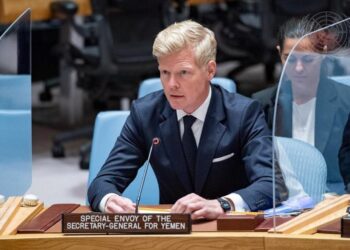US-led Iraq war brought no gifts to a society already living under a chaos left by dictatorship and repression.
Paul Bremer, the leader of the Coalition Provisional Authority, banned the long-leading Baath Party and dismantled the Iraqi military and intelligence agencies in May the same year. The choice caused the country to lose years of security and governance while alienating hundreds of thousands of skilled soldiers.
Tens of thousands of Iraqi people were killed during the changeover from US to Iraqi control in the mid-2000s, and an armed revolt under the direction of al-Qaeda was also started. The end result was the start of a communal civil war and finally the creation of ISIS.
The Provisional Authority was focused on achieving an ethno-sectarian harmony in the country after Saddam was toppled from power. The executed ex-leader was charged with oppressing the Shia and Kurdish communities.
The Iraq Governing Council (IGC), the country’s first post-2003 executive body, was chosen using the muhasasa, or sectarian quota system, to ensure balanced government participation among the Shia, Sunni, and Kurdish communities.
Parties that later take over Iraqi politics after 2003 were given political and economic clout under the new regime. However, one of the main drawbacks of the muhasasa model was how it exacerbated sectarian conflicts, which are still felt in Iraq and the surrounding area.
Iraqis elected their first full administration in 2005 despite violent outbursts, giving the Shia majority shareholding of legislature. Under the new form of government, the president would be a Kurd figure, the speaker chosen among a Sunni group, and the prime minister was a member of the Shia Muslim party.
Nouri al-Maliki, the first PM, had strong ties to armed groups. He controlled Iraqi government for years. His regime ruled during a time of autocratic laws.
Iraq under sectarian Chaos
The emergence of sectarian violence throughout the nation was mostly caused by previous administrations’ failure to reach an agreement with the Sunni majority of Iraq. While violence by supporters of Shia religious figure Muqtada al-Sadr increased in the south, Sunni uprisings grew in Anbar and Fallujah.
Others claim that the harsh security measures implemented in Sunni regions radicalized many people, some of whom later joined ISIS. Others claim that several Sunnis were unable to comprehend their loss of power in Iraq, which they had enjoyed under Saddam.
As a result of the area’s lack of security following the American soldiers’ withdrawal in 2011, ISIS tightened its hold. After establishing a so-called “caliphate” over significant portions of the nation in 2014, it was ultimately destroyed in large part by 2017 following a protracted military war that once again involved the US.
The greatest popular uprising to take place in Iraq since 2003 overthrew the administration in October 2019 and compelled parliament to pass a new electoral legislation. Around 600 protestors were slain by security forces and paramilitary organisations during the revolt.
The extraordinary demonstrations, which continued for months before coronavirus regulations, were a reaction to the suppression of dissent by succeeding administrations and the control of paramilitaries. Both have stifled reform and raised the likelihood of civil unrest.
The state in Iraq today, though, was constituted by an alliance that received less than 15% of the votes. Many Iraqis who participated in the demonstrations saw it as a coalition of armed factions and self-serving political groupings.
Last August, 30 people were killed in fighting between his loyalists and other Shia militias. Even after two decades since the war that was supposed to welcome in a new age, Iraq still has a history of instability.







